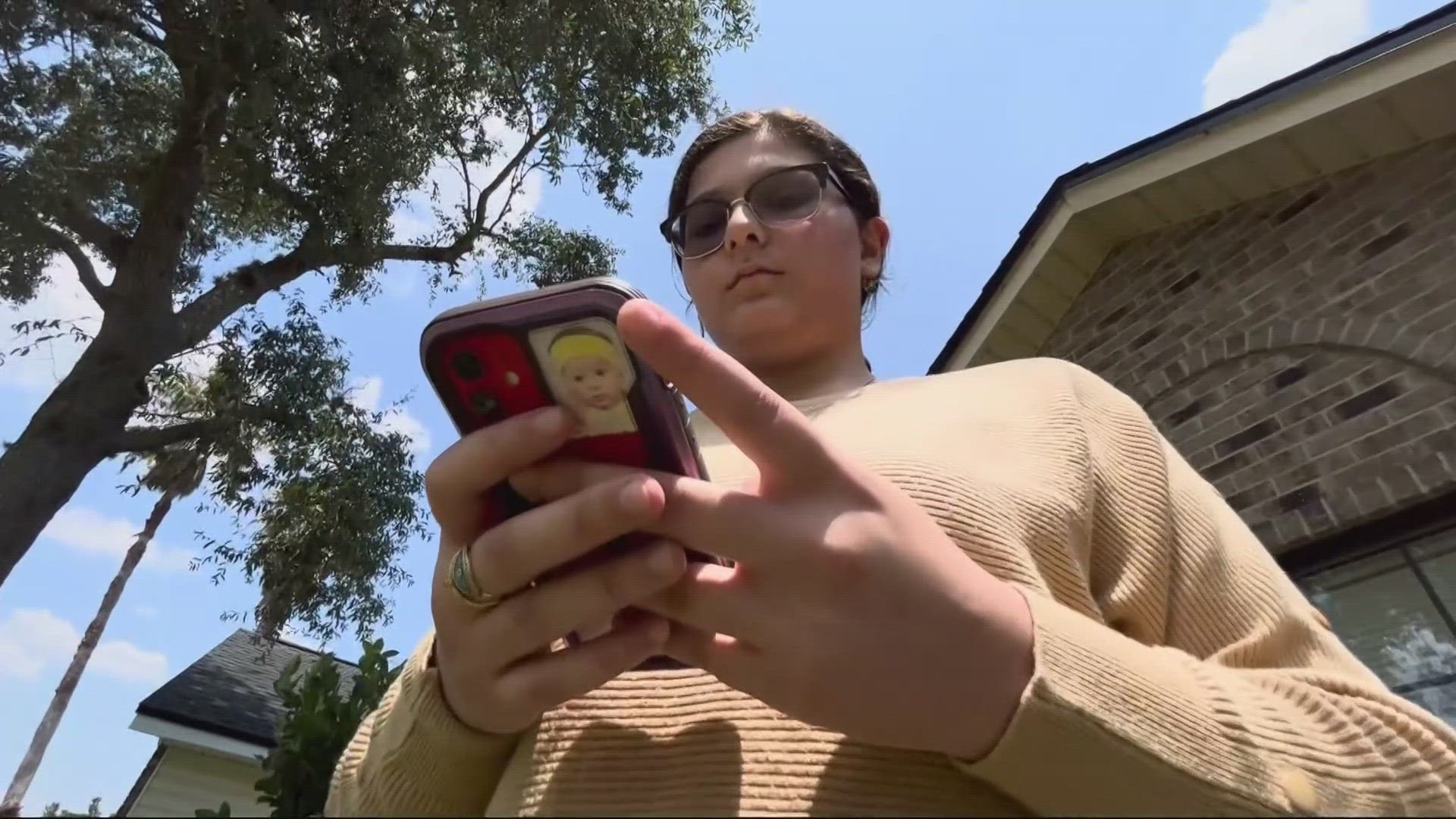JACKSONVILLE, Fla. — It's a question every parent grapples with: What's the right age to give your child a smartphone?
First Coast News brought this question to mental health experts and talked with children about their social media use.
The children First Coast News spoke with started using smartphones at various ages, ranging from five to 14-years-old. Several of the older kids First Coast News talked to say they're glad they didn't have smartphones until they were at least out of elementary school, but they say kids now could get left out of social situations if their friends all have smartphones.
"If you don't have any form of social media, you get left out of a lot of things," said 16-year-old Carter Magnano, who started using a smartphone when he was 10-years-old. “Then, I thought it was a good age, but now I probably should've waited a couple years."
Another 16-year-old boy who got a smartphone at 9-years-old says he interacted with many strangers online and was exposed to content he feels was inappropriate for his maturity level at the time. A teenage girl who got a phone at 14-years-old says her mother didn't want her body image to be influenced by social media, which she agrees may have happened. However, she believes 14 is too old because her friends will show her apps she won't know how to use.
First Coast News also spoke with some younger kids, including Alejandro Montano.
"Some of the cons were I would get distracted by YouTube videos or I would just not pay attention to anything that I need to," said Alejandro, who started using a smartphone at the age of eight.
First Coast News asked two brothers if they would consider themselves addicted to their phones. The younger brother, age 11, said yes.
"I can't do anything without it," said Kaden Benton, who got a smartphone at age five.
Terrie Andrews, the vice president of behavioral health at Wolfson Children’s Hospital in Jacksonville, says the risks need to be weighed when assessing when to give your child a smartphone.
“What we're seeing is children can actually be more depressed by spending the majority of their time on social media,” Andrews said. “The disconnection, we are missing those opportunities for connecting with our peers, connecting with adults, having those crucial conversations and being able to practice engaging in relationships.”
Andrews says and studies show, the way our brains respond to social media is similar to the way addictions are formed and kids are especially susceptible. The chief science officer at the American Psychological Association says most teens have at least one symptom of clinical dependency on social media.
“When you are scrolling, it's very similar to gambling where there's intermittent reinforcement," Andrews said. "So, you get to one and it may not be engaging and so you flip to another and it may be engaging. That is intermittent reinforcement, as we say, and that's one of the hugest topics for addiction.”
Andrews says parents should monitor screen time and what apps their children are using. First Coast News asked her what the right age is to give your child a smartphone.
“I would probably say middle school is what the research indicates, maybe even high school," she said. "But, what you face is everyone has a smartphone and so the pressure to be able to give your child a smartphone, those are tough. But with that, having crucial conversations about when to use social media, when to disengage, those are all important topics to be able to cover.”
Andrews suggests downloading the "social media agreement" from the On Our Sleeves movement with Wolfson Children's Hospital, which you can find here. It includes the following prompts: "We want to follow and be inspired by people/ organizations including..." and "We’ve discussed and agreed that the following apps are OK for me to use."
Find more tips here for safe smartphone and social media use for your child.

